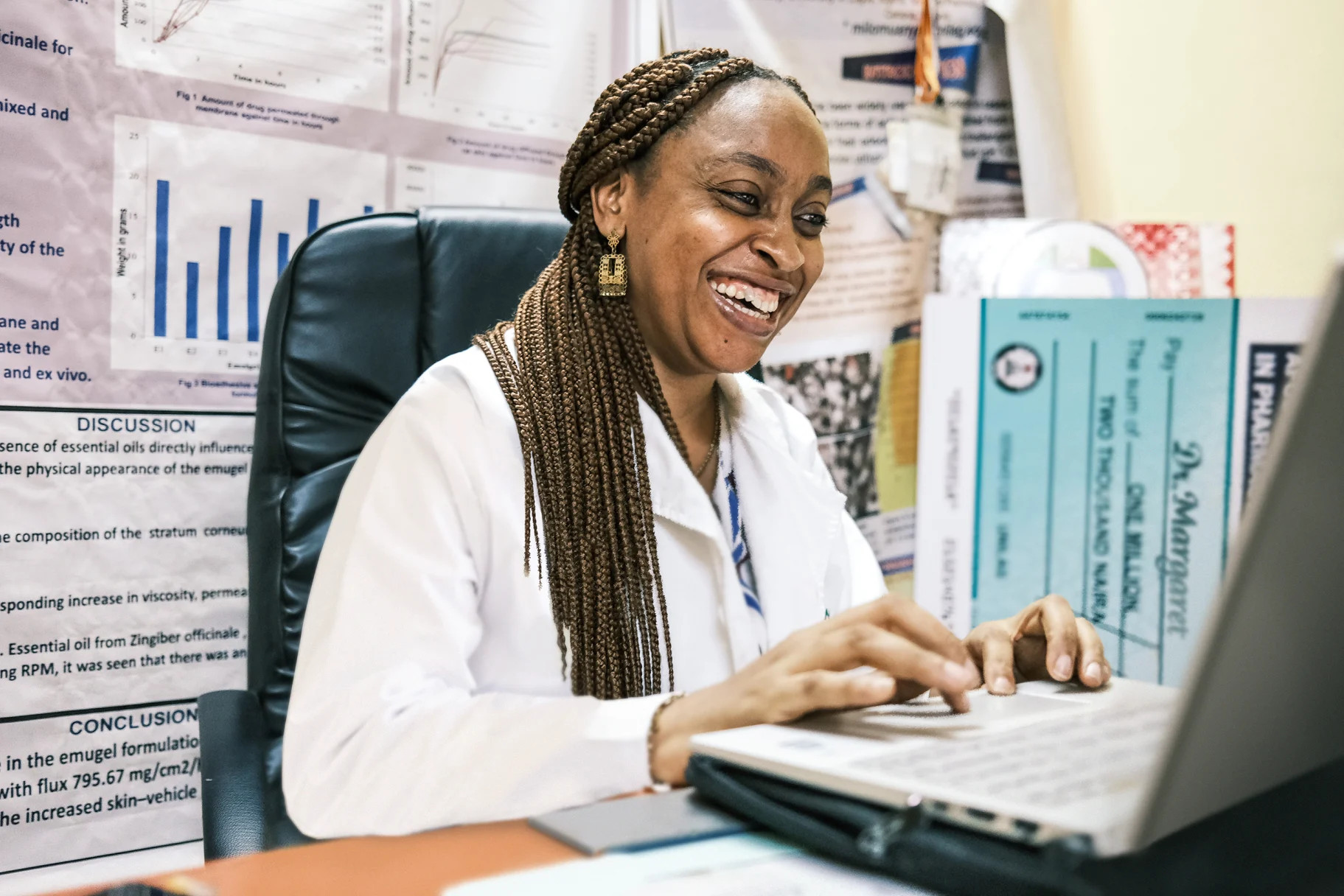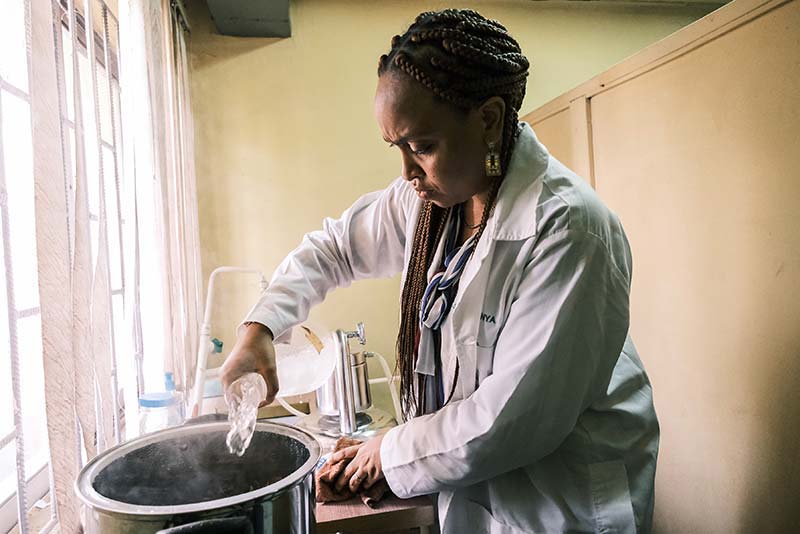As told to Susan Scutti
Working as a pharmacist in a hospital that delivers HIV care opened my eyes to HIV drug adherence problems due to medication design – children couldn’t swallow the large tablets or drink the bitter medications, and discordant couples and women in polygamous relationships needed to protect themselves from spreading or contracting the virus. These clinical issues inspired me to obtain a Ph.D. in pharmaceutics and led to my Medical Education Partnership Initiative (MEPI) Junior Faculty Research Training project, where I developed a palm oil-based gel for HIV prophylaxis.
The product is applied using an applicator in the vagina, where the presence of semen and body heat triggers release of an antiretroviral drug. This offers protection for six hours, preventing a woman from becoming infected by HIV or transmitting the virus to her partner. The fellowship provided me access to the NIH’s AIDS reagent program, so I could obtain materials to test my product against HIV cell lines.
MEPI-Jr also taught me scientific writing skills, leading to the publication of two project-related papers and two successful grant applications. The fellowship also helped me transition from a university lecturer to a senior lecturer. In 2019, the U.K.’s Royal Academy of Engineering named me one of the top 100 biomedical researchers in Africa. In 2020, I spent six months in New York as the first African fellow at the Center for Biomedical Research at the Population Council.
Ultimately, I want to develop a pharmaceutical product used worldwide. Research should be translatable, something used at the bedside to make a difference.
More Information
- Development and evaluation of mucoadhesive bigel containing tenofovir and maraviroc for HIV prophylaxis
Future Journal of Pharmaceutical Sciences, November 14, 2020 - Dr. Margaret Ilomuanya’s publication history via National Library of Medicine’s PubMed
- Medical Education Partnership Initiative (MEPI) Junior Faculty Research Trainin






